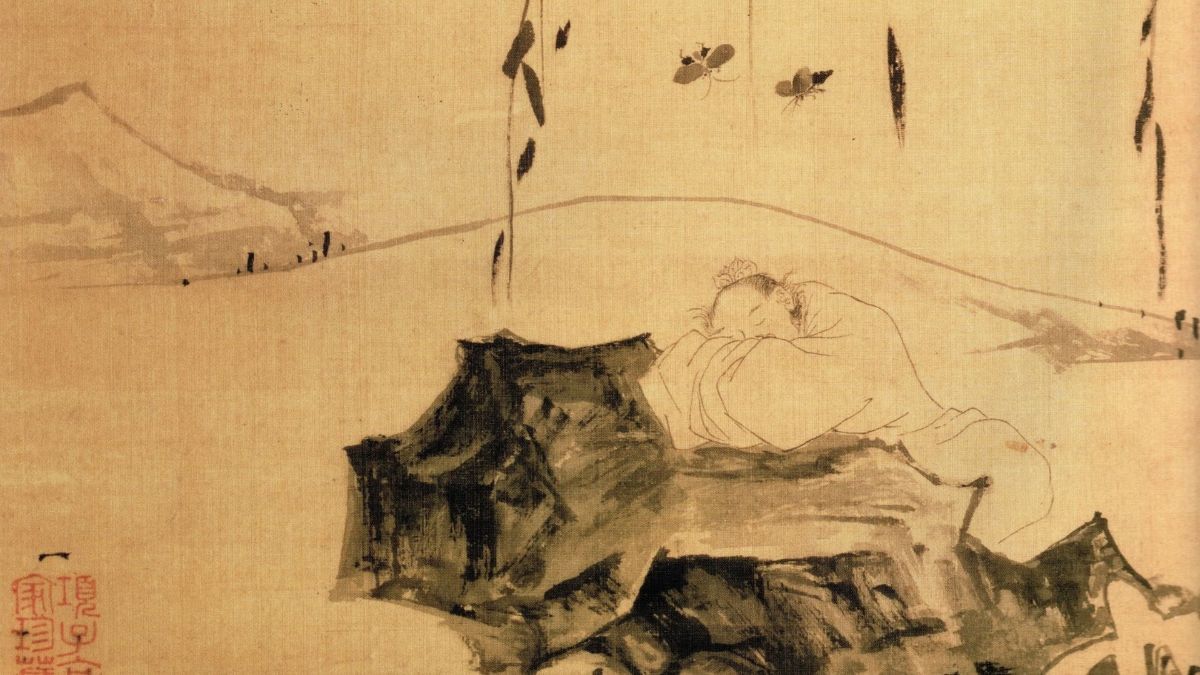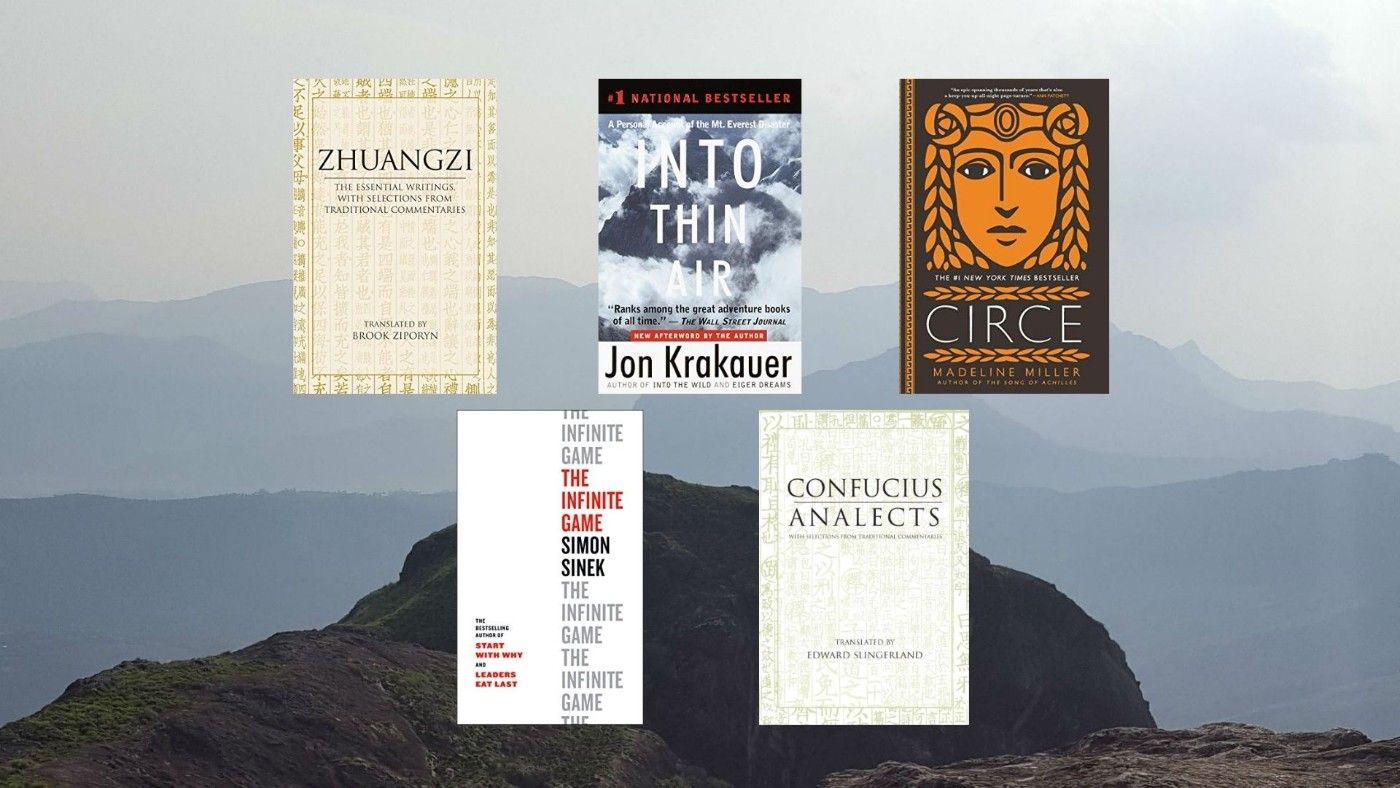In the great text of the Zhuangzi (the origins of which date back at least 2,300 years in ancient China), there's an emphasis on the idea that in order to be a good human being, one must practice the art of unlearning in order to see the nature of things more clearly.
You can listen to this post in audio format:
The process of unlearning
In the Zhuangzi and in Daoism more generally, the sage or practitioner of wisdom is encouraged to follow "the Course" (which can also be translated as "the Dao" or "the Way"). This concept of the Course becomes a sort of pseudo-mystical thing (or non-thing) that can never be clearly defined due to the limits of human understanding and language.
At its core, attempting to define what the Course is through direct means always renders that definition invalid. According to the text:
"For when the Course becomes explicit, it ceases to be the Course." [1]
The general idea in Daoist texts (including the Tao Te Ching) is that in order to fulfill your ultimate purpose, you need to act in harmony with nature. Not necessarily in the manner of what a hardcore environmentalist tree-hugger would do—but rather, in accordance with human nature. And the best way to do that, according to Daoism, is to follow the Course, a path which cannot be clearly defined or directly followed: it can only really be followed indirectly.
Here's my favorite passage from the Zhuangzi, where the title author attempts to illustrate this paradox:
"Dongguozi asked Zhuangzi, 'Where is this Course you speak of?
'Zhuangzi said, 'There is nowhere it is not.'
'You must be more specific.'
'It is in the ants and crickets.'
'So low?'
'It is in the grasses and weeds.'
'Even lower?'
'It is in the tiles and shards.'
'So extreme?'
'It is in the piss and shit.'
Dongguozi made no reply. Zhuangzi continued, 'Truly, your question misses the substance of the matter...'" [2]
Now that's some vivid imagery, especially for a text that's more than 2,000 years old! Further on in this same interaction, Zhuangzi says to Dongguozi: "free yourself of foregone conclusions and don't run away from any particular thing."
Clearly, Dongguozi is trying so hard to grasp this fabled Course that he misses the point: that it can be found everywhere—even in our bodily fluids and feces (there's probably a rich metaphysical discussion to be had here involving human waste, but I'll save that for another post).
Rather than the typical approach of learned individuals to obtain some knowledge, grasp some concept, or achieve some form of understanding, the Zhuangzi argues that the truest form of wisdom comes when we're able to unlearn what we've already learned. Drop all of your preconceived ideas, Zhuangzi says, and try to experience the world with an open mind.
It's only with an open-mind, free of fixed beliefs and biases, that we can hope to get close to our innate human nature.
For any practitioner of Daoism or follower of the Course outlined by the Zhuangzi, progress requires a non-grasping, non-understanding, and un-knowing of what we think the Course is. It's only once we're able to unlearn everything we know about the way things are, to release from our minds everything we've been taught through the course of our lives, that we can see a new path begin to poke its head up through the muck and the weeds of human experience.
Inevitably, we all maintain some sort of preconceived ideas about the way things are.
As human beings going about our daily lives, our problem is that we continually fill our minds up with knowledge about how we think the world is. This becomes ingrained in us, naturally, and to such an extent that it becomes difficult to perceive the world as it truly exists, detached from our pre-existing understanding of it.
Once we've learned about something, and ingrained that knowledge in our minds, all of our future interactions with that thing are going to be filtered through our preconceived ideas about what that thing is.
For example, in a large part of the world (and especially in Canada, where I'm from), there's an underlying assumption that the surest way to attain 'success' in life is to become a homeowner. In our capitalist society, we're told (and shown) from a young age how important it is to own your own home. But is homeownership really the ideal life decision for most people?
This preconceived notion that homeownership = success ultimately forces everyone in society down this same trajectory of taking on a high level of debt and expenses (paying interest on 30-year mortgages, property taxes, maintenance costs, insurance), and it transforms into a sort of self-sustaining pyramid scheme (in order for housing prices to continue going up, you need a constant influx of new buyers; if the new buyers were to dry-up, returns on your investment would decline sharply).
Further, the opportunity cost of owning property at a specified location in this globalized world of ours is also immense (ie. being unable to easily move to another country or region for work or education without going through the process of selling a property at current market prices, which may or may not be favorable).
But nobody is really asking whether or not homeownership should still be touted as the measure of success. This is such a foregone conclusion in our society that we're not even open to having a discussion about alternative arrangements. Homeownership has become so entangled with the concept of 'success' that to do otherwise automatically means you're less successful in the eyes of your peers (choosing to remain a renter is blatantly frowned upon by others, especially within your same socioeconomic cohort).
This example illustrates how difficult this unlearning process can be. Once a society has determined that homeownership is important, it becomes very difficult for individuals to break away from that idea; even a global economic crisis caused by too many people becoming over-leveraged on property debt wasn't enough to drive down demand. If anything, it appears that housing prices and demand are higher than ever.
Breaking free of our preconceived ideas
As members of society, there are a lot of external forces working to suppress our ability to unlearn. Capitalism, politics, the media, the education system, any cultural expectations (ie. from friends or family)—all of these institutions impart on us various narratives that we tend to follow.
To break free, here are a few steps we can take:
- The practice of unlearning begins with recognizing the actual ideas and beliefs we've been living our lives by. These can be hidden behind layers of conditioning, so a good starting point might be to ask yourself what beliefs you might hold that you would never consider budging on (note that these are learned beliefs that you formed at some point in the past, so alternative beliefs may exist somewhere out there, waiting to be uncovered).
- The next stage is to analyze your ideas and beliefs from a different perspective, in order to see where these beliefs might be leading you astray. Think of Zhuangzi telling Dongguozi that he can find the Course 'in the piss and shit.' We don't need to take things to that extreme, but don't be afraid to try on some radically different views (ie. Zhuangzi's point was that Dongguozi was asking the wrong question to begin with). You can also do this in the form of holding some friendly internal debates with yourself.
- The final stage of unlearning is to achieve a state of willing non-understanding: a state where our biases have been revealed or stripped away, where we attempt to see the nature of things anew, as if through the eyes of a child. From there, we can then begin the process of re-learning. This might mean taking on a more nuanced view of things, trying on opinions that fall somewhere in the middle rather than at the extremes, or simply having a less biased picture of the arguments for and against whatever your beliefs are.
Naturally, we're in a constant state of learning. And as we unlearn something, we inevitably begin to re-learn things. Our mind can't hold to ambiguity for too long, and it's normal for our ideas and beliefs to change and go through transformations over time.
As a rule, being on the path of wisdom means that we should be in this repeating cycle of learning, unlearning, and re-learning. Like the head of the Ouroboros which consumes its own tail, philosophy itself is in an unending cycle of seeking but never fully attaining wisdom.
If at any point you think you're fully woke and have all of the answers, chances are that you definitely don't.
If the waters are murky, that means you've dug yourself into a place where new discoveries and continuous learning can happen. If, on the other hand, you're adamant that your particular view is the right one and that everyone on the other side is an idiot—you might be missing something.
Rarely can we peer into the waters of wisdom with perfect clarity.
When it comes to Daoism and the Zhuangzi, while we may never be able to clearly understand what the Course truly is, beginning the process of unlearning might allow us to open up to new worlds and ideas we never knew existed. This is the reward that awaits us in this endless pursuit of wisdom.
At the very least, the practice of unlearning might just set us on the path towards becoming a true follower of the Course, whether we know it or not.
Food for thought:
I'd love to read your responses to these questions in the comments below.
- Have you ever encountered Daoist philosophy before? What stands out to you about this philosophy?
- Can you identify any foregone conclusions you might hold? If so, where did they originate?




